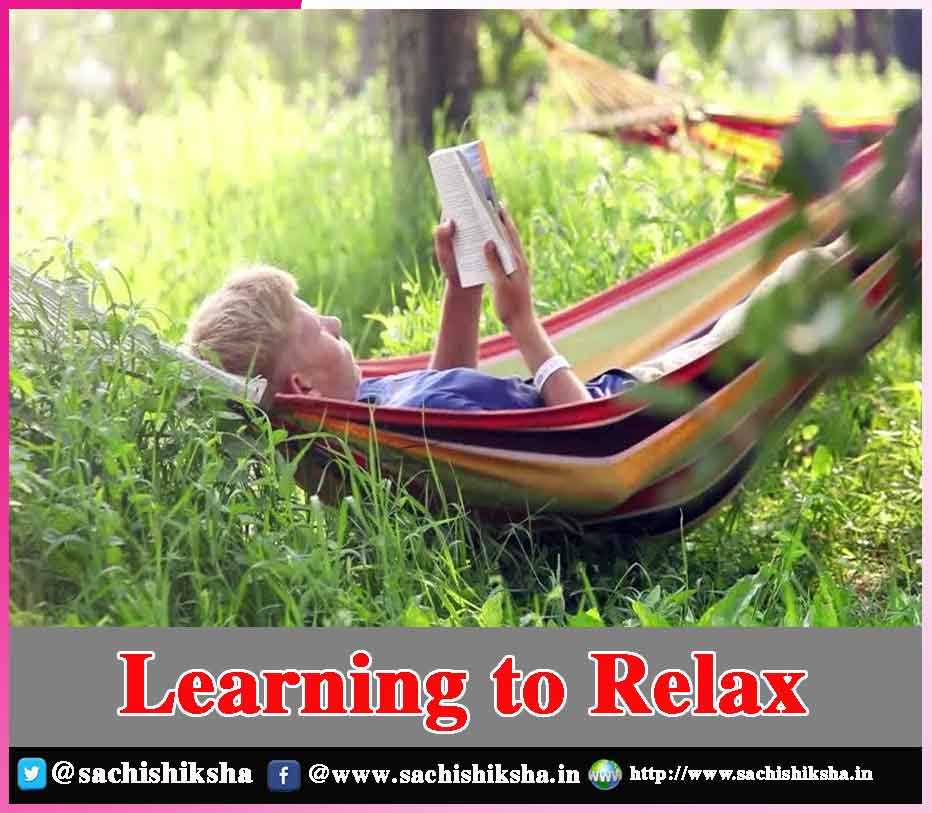Learning to Relax
“Don’t make things too complicated. Try to relax, enjoy every moment, and get used to everything.”
~ Angelique Kerber
Introduction: There’s no denying that living in the contemporary world may be difficult. Making time for yourself can be difficult when you have obligations to your family, friends, and job. But making the most of it is crucial. Your body and mind will benefit from relaxation, and it will also help you bounce back from the stresses of daily life. Fortunately, no matter how busy you are, it’s easy to learn how to carve out time for relaxing and how to rest effectively.
Also Read:
- Learning to be Human
- Online Learning- Pros and Cons
- New Parents Learning the Parenting Business
- The Unique Power of After-School Learning
Table of Contents
Way of Life:

Think About Yourself:
Spend some time considering the stresses in your life and, if possible, how you might begin to address them. You might need to put distance between yourself and them in order to take care of yourself, for instance, if you’re feeling secondhand tension from those around you. Schedule time to think about the things that are upsetting you, even though it may sound stupid. This type of compartmentalizing may help to lessen general stress and anxiety.
Maintain Three Pillars of Health:
Be sure to maintain your “three pillars of health”: proper nutrition, regular exercise, and adequate sleep. Your body will be out of balance if you don’t have any of these in your life, which will make it harder for you to handle stress. In related news, straighten up.
Stress Causes Tense Muscle:
Stress is a common cause of tense muscles. When you sit or stand appropriately, it eliminates muscle tension, allowing you to physically relax and thus quiet your mind. Stop trying to be flawless or overly productive so that you never have any downtime if you are a workaholic. When you have an extremely driven person, it will take some effort to shift your perspective, know your boundaries, and accept what you cannot change.
Taking Breaks is Essential:
Take a brake for avoiding burnout, yet some of us don’t “break” even when we say we would. We may still be engaged in job-related thoughts or activities that don’t appear to be a work in the back of our brains (e.g., checking email on our phones). To truly unwind, you need to learn to feel at ease with doing “nothing,” such as simply sipping tea while gazing out the window or relaxing on a park bench without feeling like you should be doing something else.
Do the Things That Recharge You:
If you can’t stand doing nothing, choose things that will help you recharge, like reading a book, going for a stroll, or simply listening to music. Or, take a power nap to sharpen your mind. Lack of time for breaks? Do not substitute something else for the time you save by eliminating activities.
Breathing Exercise:
One of the simplest methods of relaxation is breathing exercises, which are useful for reducing tension anywhere, at any time. Put one hand on your belly and sit or lie down in a peaceful, secure location, like your bed or the floor at home. Slowly count to three as you inhale, and then slowly count to three as you exhale. Feel your tummy rise and fall as you inhale and exhale. Repeat five times, or for however long you need to relax.
Write Down Your thoughts:
Writing down your thoughts may assist in allowing you to unwind. Take a few minutes to jot down some brief notes about how you’re feeling or how your day is going while you’re feeling pressured. You may write this down on a notepad or a smart phone note-taking app. Don’t stress about using beautiful language or using perfect spelling. Just concentrate on being yourself to relieve some of your tension.
Some people find that writing down their blessings might make them feel more at ease. According to experts, when we are stressed, we prefer to focus on the negative aspects of our lives rather than the positive. Thinking about the pleasant aspects of your life and writing them down may help you relax. Try to think of three wonderful things that happened to you today and write them down, even if they are minor things like arriving on time to work or eating a delicious lunch.
Find Your Happy Place:
Have you heard the saying “find your happy place” before? Think about a spot in the world where you feel the most at peace while sitting in a peaceful, secure location, like your bedroom. Close your eyes and try to picture every aspect of that location, including the sights, sounds, smells, tastes, and tactile sensations. When you think of the beach, for instance, you could picture the sound of kids playing in the sand, the scent of sunscreen, the flavor of cool ice cream, and the feel of the grit beneath your feet. The more immersed you become in your visualization, the easier it is to unwind.
Relieve Your Stress:
We frequently experience physical stress in addition to mental stress when we are under stress. Releasing any physical tension can help relieve stress in your body and mind. Consider your bed, a carpet, or a yoga mat as a soft surface to lie on. Tense one portion of your body at a time, and then progressively relax your muscles. As you do this, pay attention to how your body feels. Many people begin by flexing their facial or toe muscles, then moving across their entire body, starting at one end and ending at the other.
Don`t Let Stress Control You:
Even while stress is a universal aspect of life, you shouldn’t let it control you. Learn how to relax to take charge and control your stress. Even if you don’t feel particularly anxious, daily relaxation practice can be a helpful preventative approach for preventing stress in the first place.
Consult the Doctor:
If relaxation methods aren’t working to relieve your stress, you should consult a mental health expert. They’ll be able to provide a particular treatment strategy that will meet your requirements.












































